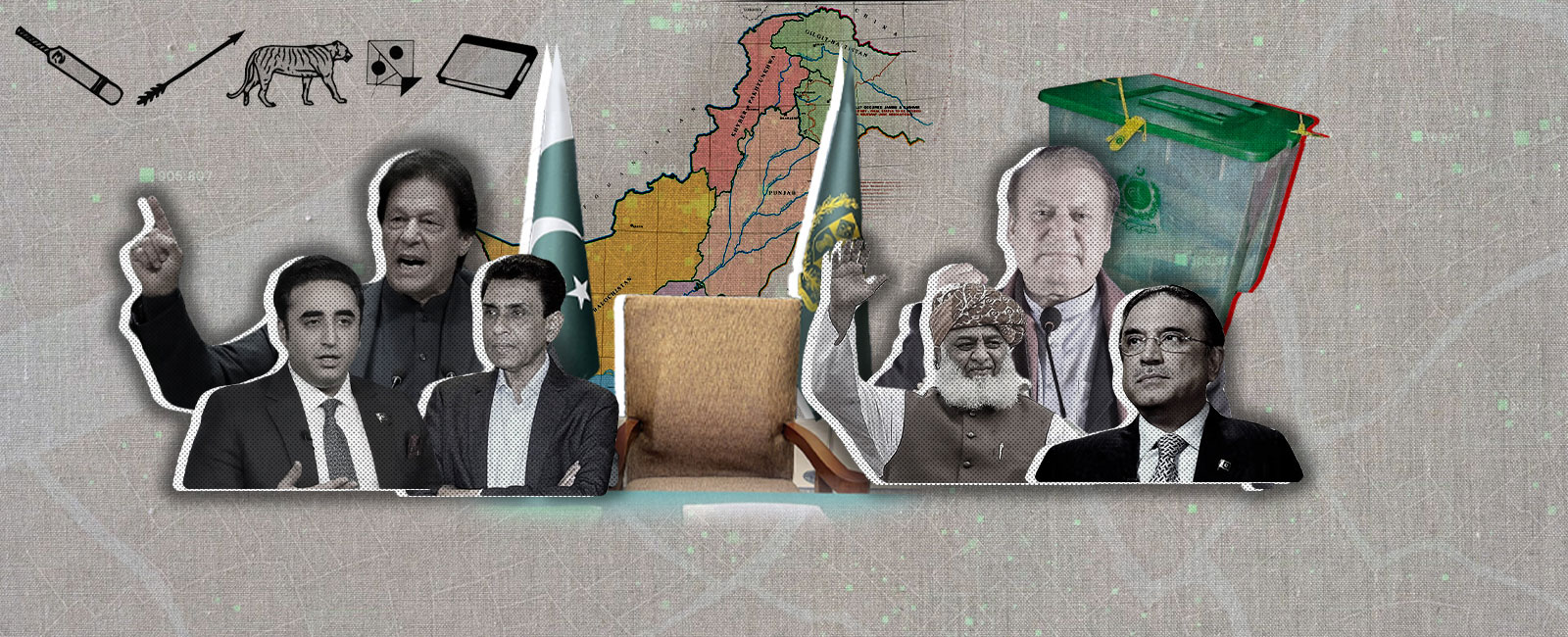Elections 2024: Will this vote turn Pakistan around?
Expressing concerns over weaknesses in electoral system, experts say elections inevitable for country

KARACHI: Over the recent years, the Picassoesque political canvas of Pakistan underwent topsy-turvy transformations, particularly in the wake of Pakistan Tehreek-e-Insaf (PTI) captain Imran Khan's dismissal as prime minister in April 2022 through a surefire no-trust motion meticulously choreographed by an accidentally united opposition and their backers.
Subsequently, Khan took his political battle to the streets with a so-called “foreign conspiracy narrative” and his party lawmakers stepped down en masse as members of assemblies — a move seen as a major blow to parliamentary politics.
Nevertheless, the PTI founder massively broadened his support base via street politics, which further harmed the country’s democratic system as political polarisation increased alarmingly due to Imran's pet rhetoric of labelling his rivals as "traitors" and boasting himself as a true patriot.
While the return of PML-N supremo Nawaz Sharif to the country from self-imposed exile rekindled his party’s hope for a return to power, Imran’s incarceration and disqualification from contesting elections left his supporters disillusioned.
As the general elections are all set to take place on February 8, the future of Pakistan’s democracy remains uncertain with key political players raising concerns regarding a level playing field and vote transparency.
In the last four general elections, voter turnout averaged just over 45%, which means that more than half the voters do not even partake in electing their new representatives.
Several reports by international organisations painted a bleak picture of the state of democracy and freedom of speech in the country with the Economist Intelligence Unit (EIU) 2022 report placing Pakistan among 34 "Hybrid Regimes" around the world.
The integrity of the last general elections was also tainted by the allegations of rigging and political engineering — a strategy employed to manipulate election outcomes in favour of any particular political party.
Political observers and experts believe that free and fair elections are more crucial for the country now than at any other time in history to bring political stability and deal with a plethora of challenges including a weak economy, sky-high inflation, and mounting foreign debt among others.
Do experts have faith in democracy?
Ahmed Bilal Mehboob, president of the Pakistan Institute of Legislative Development and Transparency (Pildat), told Geo.tv that Pakistan’s democratic system was not only fragile but had also been heavily manipulated in the past and was still vulnerable to powerful influences.
"Despite that, I have to have faith in the democratic future of Pakistan and contribute whatever I can because there is no other alternative. I as Pakistani cannot afford to lose hope," he added.
Mehtab Rashdi, author and bureaucrat-turned-politician, expressed similar views saying the current state of the democratic system in the country was in disarray.
She opined that the democratic system in the country had not flourished over time and the continuity of democracy always remained in doubt.
Zahid Hussain, political commentator and author, told Geo.tv that people did not have complete faith in Pakistan's democratic process given the past experiences as the governments were installed and then removed undemocratically.
Rasul Baksh Rais, a political science professor at LUMS Lahore, slightly disagreed with other experts and expressed faith in the democratic system saying although the system is not working optimally, it enables the people of Pakistan to live with the procedural democracy.
Asma Faiz, Associate Professor of Political Science at LUMS, said Pakistan had a lot of resilience and strength.
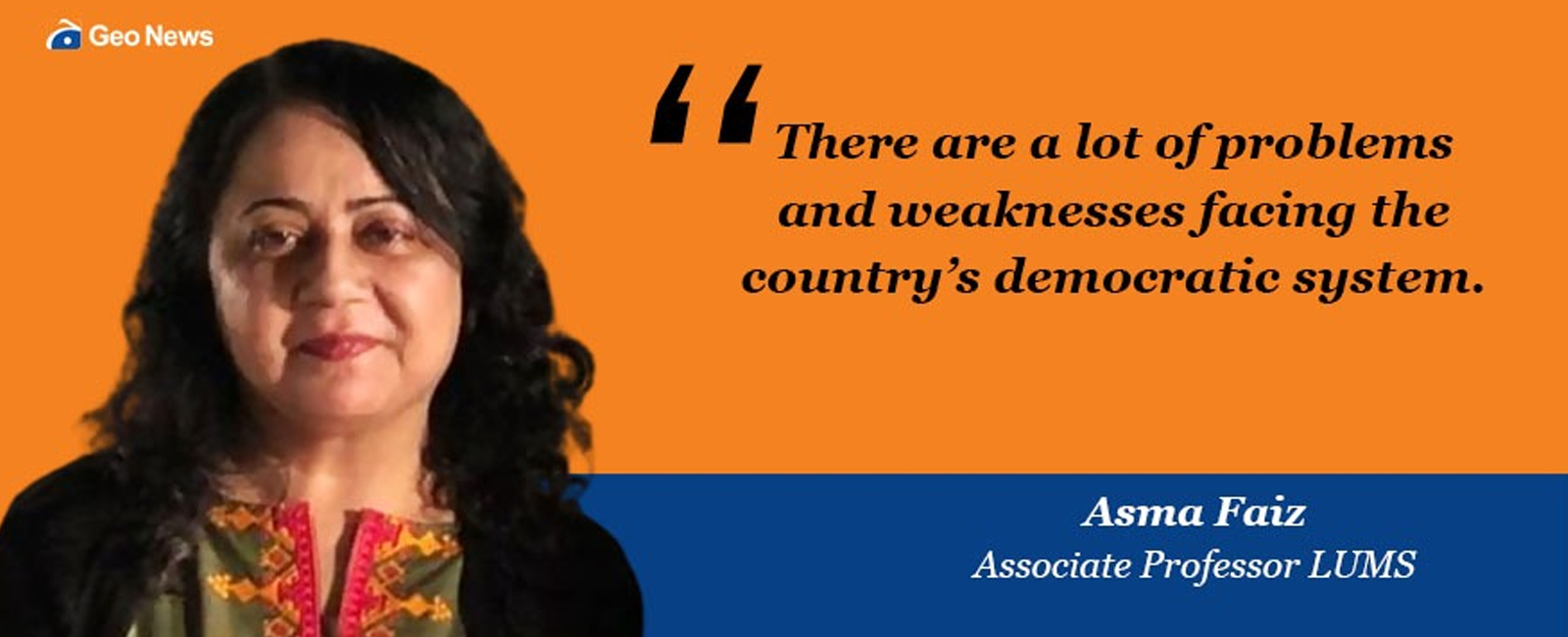
"Still, at the same time, there are a lot of problems and weaknesses facing the country’s democratic system. While I do say that I believe in the system, I am not happy with the way things are and I hope that there can be an improvement,” she added.
‘Elections need of the hour’
Mehboob said the 2024 election certainly provided a chance to move forward, achieve some degree of political stability, and make difficult decisions to improve our economy, governance and world standing.
"Potential is there but it depends on various factors whether we take advantage of this potential," he noted.
Hussain concurred with Mehboob that free and fair elections were the need of the hour to bring stability to the country, adding that all political parties should be allowed to participate in the elections.
He maintained that there was a very clear perception that one political party which was ousted some years ago was "being favoured by the establishment".
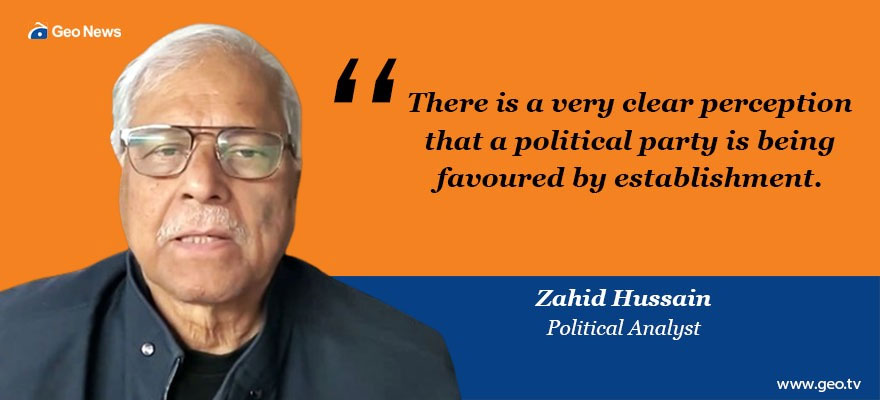
The LUMS associate professor said given the prevailing situation, it was unlikely that polls would lead to long-term stability “because there appears to be a question mark on the fairness and legitimacy of the [electoral] process”.
Sharing his two cents, Rais lamented that opposition or losing parties always made attempts to delegitimise the electoral process even when elections were conducted with the best of intentions.
"[...] but overall I believe the elections will help us retain direction and achieve political stability."
On the other hand, Rashdi said the first and fundamental principle of democracy was that all political parties should repose confidence in the electoral process.
The expert raised questions over the transparency and fairness of the democratic system, saying political parties that had the patronage of the establishment always swept elections.
How to strengthen the democratic system?
Responding to a question about what steps democratic forces can take for the strengthening of democracy, Asma Faiz said only procedural aspects of democracy were discussed mostly while fair competition, checks and balances should be in place along with other elements.
“Qualitative decline [of democracy] is witnessed in Pakistan like other countries in the world,” she opined.
Mehboob suggested political parties give a chance to talented political workers by awarding them tickets and appointing them to elected public offices and as party officials instead of promoting families of party heads.
LUMS Professor Rais also advised the political parties to come out of the “shadows of patronage” and also do away with the patronage that they conduct with voting blocks within the country.
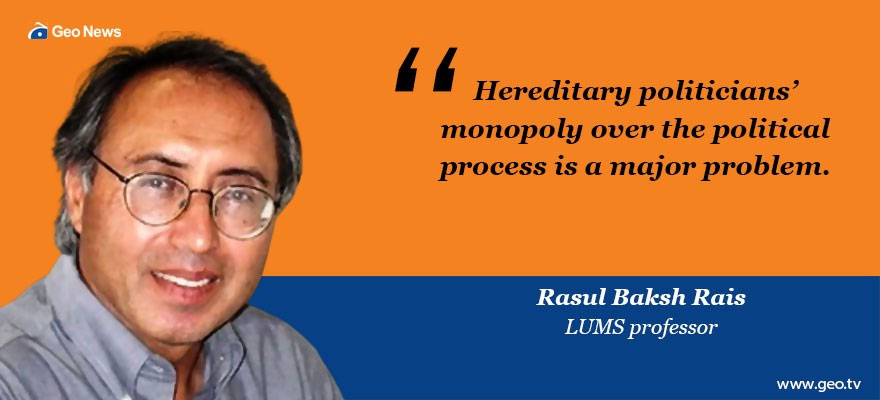
He said the hereditary politicians and political families’ monopoly over the political process was a major problem facing the country's democratic system.
Will elections resolve the country’s woes?
The Pildat president said there were several challenges to the prospects of election to take the country forward and the most formidable challenge was the continuing "do-or-die confrontation between the establishment and a political party".
"If this state of confrontation continues, we may not see election providing a way forward," he noted.
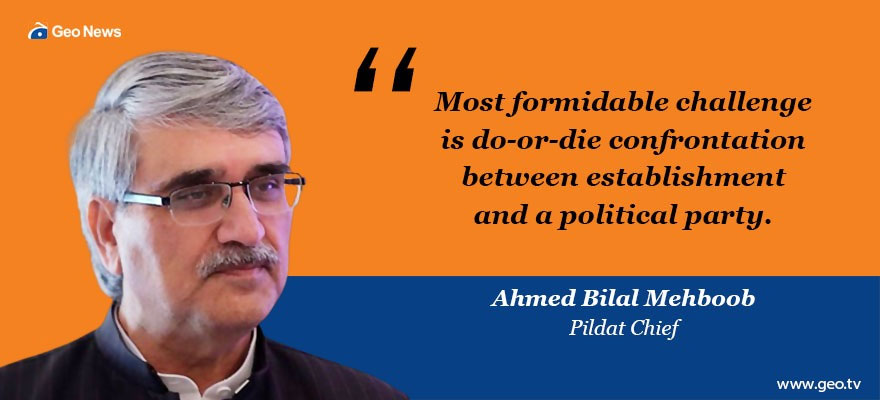
Hussain also sounded pessimistic when asked if elections would help alleviate the country's woes.
"I don’t think so [as] the process is not fair and all political parties are not being provided level playing field. I think the legitimacy of elections has become questionable," he lamented.
Rashdi said not only the next few weeks but also what lay ahead following the formation of the next government was equally crucial, wondering whether the next set-up be allowed to complete its tenure.
LUMS Associate Professor Faiz drew attention to the "legitimacy deficit" vis-à-vis alleged irregularities in the electoral process.
“It seems that the credible and legitimate transition of power will not take place via these elections,” she feared.
Who is responsible?
Rashdi believed that all stakeholders including political parties, establishment, judiciary, voters and others were responsible for the fragile democratic system in the country.
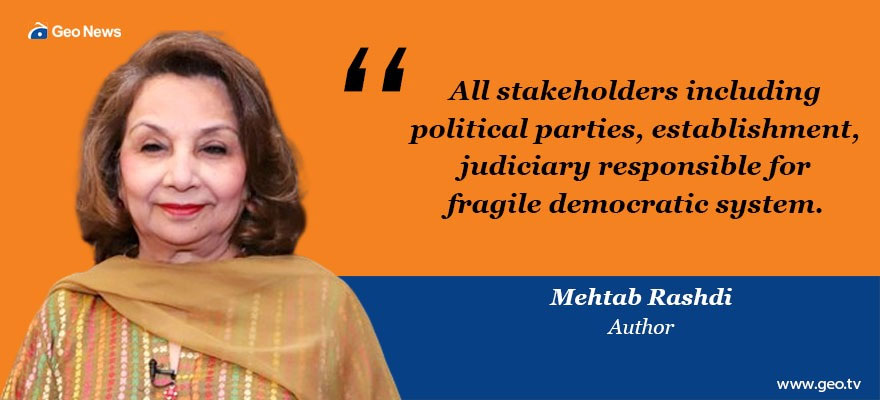
Echoing Rashdi's observations, Hussain noted that weak democratic institutions have allowed interference of "extra-constitutional institutions" in political affairs and the strengthening of the "rule of establishment," in the country.
"At this point of time it seems that either all institutions of democracy are in the process of collapse or already collapsed," he added.
While holding the interference of the establishment responsible for the decline of democracy, Hussain also blamed political parties that he said never learned their lessons and kept repeating the same mistakes.
Mehboob said the key responsibility to strengthen the democratic system lay with the most powerful entity — the establishment.
Despite considerable improvement in Pakistan’s democratic system over time, the PILDAT chief said the powerful and dominating influence of the establishment on political affairs negated all the improvement and was the biggest obstacle in moving forward.
As democracy dances on the razor-sharp edge of uncertainty, surpassing the influence of patronage and cultivating a framework that welcomes contributions from skilled individuals rather than relying solely on political dynasties are the elemental challenges.
As — and if — Pakistan goes to vote on February 8, 2024, the path to robust democracy still seems to be a slippery slope, while political stability is impossible without the joint accountability of all the stakeholders.
— The writer is a Geo.tv staffer



